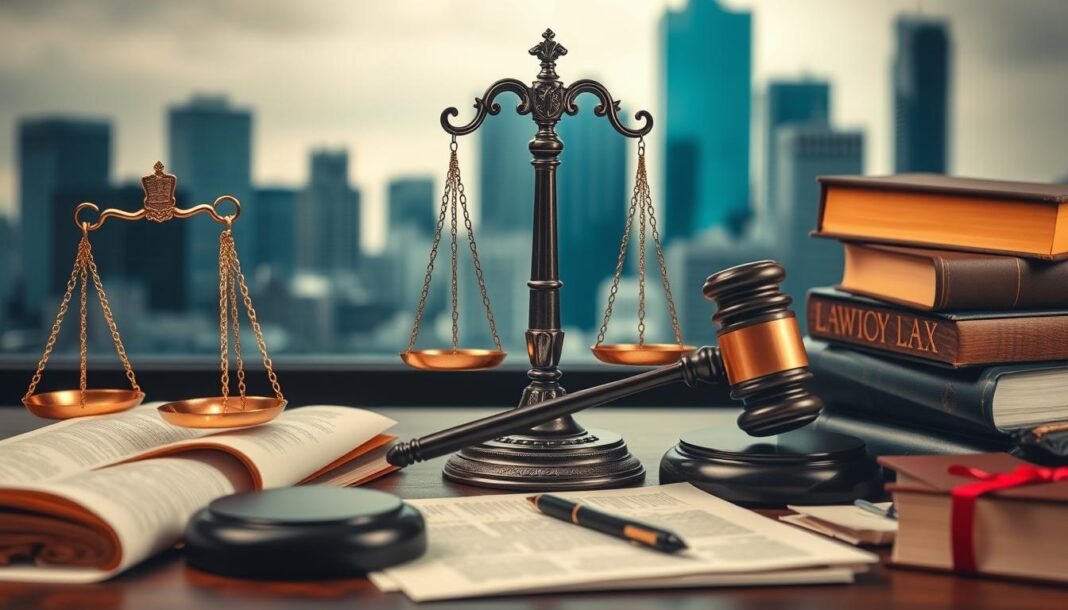Laws can be tricky to understand. Many people face situations where legal lines are blurry.
This guide explores legal boundaries in the United States. It helps you avoid unintentional legal mistakes.
We’ll look at real-world examples. You’ll learn about potential risks and get practical tips.
This guide offers precise info on legal complexities. It’s for anyone curious about legal frameworks.
Legal knowledge is helpful for everyone. Understanding laws helps you approach situations with confidence.
Understanding the Concept of Legality
Legality sets rules for acceptable behaviour in society. It draws lines between allowed actions and illegal activities.
State laws decide what’s legal or illegal. Each state may view laws differently.
Legal systems look at many things to judge an action. They consider intent, context, and possible harm.
State laws manage social interactions and protect citizens. These rules change to meet new challenges.
Legal experts often update definitions of illegal activities. This reflects changing social norms and new technology.
Knowing legal standards helps people make wise choices. It helps avoid getting into trouble with the law.
Common Misconceptions About Illegal Activities
Legal myths can trap people in dangerous misunderstandings about the law. Many think ignorance of the law is a valid defence.
This idea is wrong. U.S. legal systems say not knowing a rule doesn’t excuse you.
Unclear legal situations often confuse people. They may misinterpret legal boundaries, thinking social norms protect them.
These wrong ideas can lead to unexpected legal troubles. Many think harmless-seeming actions are okay.
These actions might break the law. The consequences can be severe.
Learning about legal boundaries helps prevent mistakes. Ask experts and read local rules.
Legal interpretation keeps changing. Stay informed about new rules in your area.
The Legal System and Enforcement
The U.S. legal system is a complex network. It keeps people safe and protects their rights.
Law enforcement upholds laws and investigates crimes. They work at federal, state, and local levels.
Many agencies take part in the justice system. Police, sheriffs and the FBI work to stop crime.
Each agency has its duties. This ensures all legal areas are covered.
Legal results depend on how bad the offence is. Minor crimes may lead to fines.
Serious crimes could mean jail time. The system aims to punish and help fix lousy behaviour.
Knowing how law enforcement works helps people follow the rules. Local police handle community issues.
Federal agencies deal with more significant cases. These might involve national security concerns.
Law enforcement’s main job is keeping people safe. People should work with the police and respect the laws.
Understanding legal results helps maintain a safe society. It’s key to follow the rules set by law.
Specific Situations: Is It Illegal to [Insert Detail]?
Legal questions can be difficult to understand. Real-life cases often involve complex situations that test our grasp of the law.
Legal issues can pop up in surprising ways. They might involve work problems or neighbour fights.
Property rights, online messages, and personal space can cause legal trouble. Sharing someone’s private photo without asking could get you in trouble.
To understand legal questions, we need to look at the whole picture. The law sees a difference between accidents and things done on purpose.
Your situation matters when it comes to legal results. Real court cases show how laws work in real life.
A slight mix-up can turn into a significant legal problem. Knowing your rights can help you avoid fights.
When things are unclear, it’s best to ask a lawyer. They can explain tricky legal stuff and protect you.
The Role of Intent in Determining Legality
Criminal intent is key in legal cases. Men’s rea, or “guilty mind,” helps decide if an action is a crime.
Legal intent considers a person’s mental state during an action, going beyond the physical act itself.
Courts must prove someone planned or knew their action could cause harm. They also carefully examine the person’s state of mind.
Some cases need specific intent. Others may look at reckless or careless behaviour.
There are different types of criminal intent. Direct intent is when someone does something on purpose.
Indirect intent happens when a person knows what might happen but acts anyway. Negligent intent is when someone isn’t careful enough.
Proving mens rea can be challenging. Lawyers must show the person could and wanted to commit a crime.
They look at evidence and listen to witnesses. They also try to understand the situation.
Intent helps decide who is responsible for a crime. It looks at why people do things, not just what they do.
Reporting Illegal Activities
Spotting illegal activities can be challenging. Whistleblowing helps keep organizations ethical and legal.
Proper reporting channels and legal safeguards aid responsible action. Document evidence carefully when you see potential illegal behaviour.
Contact the proper authorities based on the crime. Many organizations have compliance departments for internal reporting.
Whistleblower protections have improved recently. Laws shield those who report from workplace retaliation.
The Whistleblower Protection Act safeguards employees who come forward. Different crimes need specific reporting methods.
Report financial fraud to the Securities and Exchange Commission. File workplace discrimination claims with the Equal Employment Opportunity Commission.
Always put your safety first. Seek legal advice if unsure about reporting.
Whistleblowing protects public interest. Proper reporting helps maintain societal standards.
Gather solid evidence and keep things confidential. Use legal protections designed for those who speak up.
When to Consult a Lawyer
Legal advice can protect your rights in complex situations. Seek help for workplace issues, injuries, contract problems, or criminal charges.
Get a lawyer when the stakes are high. They can guide you through lawsuits, family issues, or big money deals.
Lawyers offer initial talks to explain your legal standing. Find one who knows your specific problem area.
Ask friends, check bar associations, or use online directories for good lawyers.
Get legal help for risky situations or contract talks. A lawyer can advise you before problems grow.
Early legal advice often saves time and money. Trust your gut if something feels legally tricky.
The Impact of Social Norms on Legality
Legal systems change over time. They shift based on what society thinks is okay.
Social norms shape our laws. As people’s views change, lawmakers create new rules.
Public opinion can lead to legal changes. When many people challenge old rules, lawmakers often rethink them.
Significant legal shifts have occurred in recent years. Marriage equality and workplace fairness laws show how society affects legal changes.
Laws aren’t set in stone. They change as our culture and ethics evolve.
Legal systems reflect our shared values. Social norms drive progress in our laws.
Resources for Learning About Legal Matters
Legal matters can be tricky. But now, there are many ways to learn about them.
Self-help guides and online platforms make law education easier. These tools explain complex legal terms.
Websites like Nolo and FindLaw offer lots of legal info. They have articles and guides on many legal topics.
Public libraries and law schools are great for legal knowledge. Many universities share free online legal research materials.
Cornell Law School and Harvard Law School offer free legal content. These resources help people better understand legal systems.
Digital platforms have changed how we access legal info. Coursera and edX offer online legal courses.
Lawyers and legal experts teach these courses. They help build a strong base of legal understanding.
The American Bar Association provides valuable educational resources. Their website offers insights into legal trends and advice.
Using these tools can boost your legal knowledge. You’ll better understand legal processes and your rights.
Learning from Legal Precedents
Legal precedents guide the American judicial system. They create roadmaps for understanding complex legal interpretations.
Courts establish principles for future judges to reference. These decisions help with similar rulings later on.
Legal history is crucial. Landmark cases like Brown v. Board of Education changed society.
Such precedents can reshape societal norms and legal understanding. They show how court decisions impact our lives.
Legal precedents help navigate tricky legal landscapes. They provide context for current laws and show how interpretations change.
Studying past decisions gives insight into legal judgments. It reveals the thinking behind essential rulings.
Landmark cases show patterns in legal thinking. They balance individual rights with society’s interests.
These precedents help interpret the law in changing times. They cover topics from civil rights to tech challenges.
Studying legal history benefits everyone. Each precedent tells a story of change and justice.
Final Thoughts: Navigating Legal Dilemmas
Legal awareness is a vital skill in our complex world. It helps us make smart choices and avoid legal troubles.
We can protect our rights by learning about laws. This knowledge equips us to handle tricky situations responsibly.
You don’t need to be a legal expert. Just learn basic rules and know when to ask for help.
Research local laws and understand your rights. These simple steps can reduce legal risks significantly.
Stay curious about rules that affect your life. Pay attention to changing laws and ask questions.
Legal knowledge helps us make wise choices. It protects our interests and builds a fair society.
Laws change, and new challenges come up. Keep learning to handle legal issues with confidence.
FAQ
What exactly defines an action as illegal?
An illegal action breaks laws set by governments. These laws protect people and keep order in society.
Illegal acts go against rules that say what we can’t do.
How do state laws regarding illegal activities differ from federal laws?
State laws can be different in each state. Federal regulations are the same across the whole country.
Some things may be legal in one state but not in another.
Can ignorance of the law be used as a legal defence?
Not knowing a law doesn’t work as a defence in court. People must know and follow the rules.
This stops folks from avoiding trouble by saying they didn’t know.
What should I do if I accidentally commit an illegal act?
Talk to a lawyer right away if you break a law by accident. Be honest about what happened.
Don’t say more without a lawyer. Ask for help to know your rights.
How can I learn more about local and federal laws?
Check official websites and go to legal workshops. Read good legal guides and ask lawyers.
The American Bar Association and court websites have helpful info.
Is it illegal to record conversations without consent?
Recording laws are different in each state. Some need one person to agree; others need everyone.
Check your state’s rules before you record any talks.
What constitutes intent in legal proceedings?
Intent is what someone was thinking when they did something wrong. It shows if they meant to break the law.
Courts look at planning and what the person knew about their actions.
When should I consider consulting a lawyer?
Talk to a lawyer for legal fights or criminal charges. Ask them about big decisions or tricky legal stuff.
Many lawyers give free first talks to help you understand.
How can I report suspected illegal activities safely?
Call the police or use secret tip lines to report crimes. Some laws protect people who report bad things.
Stay safe and give proof when you can.
Are online actions subject to the same legal standards as physical actions?
Yes, online actions can get you in legal trouble, too. There are laws about online bullying, stealing, and hacking.
New laws keep coming out to deal with online problems.v
you may also read: Discover Authentic Russian Names with Our Free Tool

















